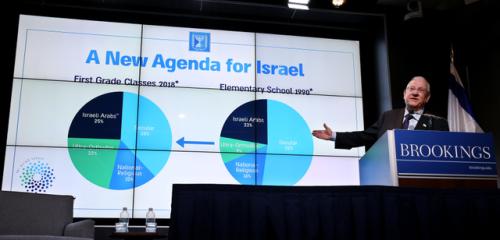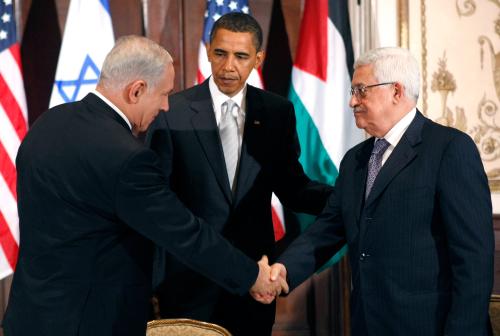Why does Israel seem from abroad to be unwilling to offer a clear and coherent vision of how to resolve its internecine conflict with the Palestinians? Brookings Fellow Natan Sachs tries to answer this question in a recent article for Foreign Affairs magazine. Sachs describes and critiques the “anti-solutionist” worldview of Israel’s current leaders, which stems from the belief “there are currently no solutions to the challenges the country faces and that seeking quick fixes to intractable problems is dangerously naive.” Sachs argues that the Israeli public has largely come to share this pessimistic, cautious view, ever since the terrorist attacks of the 1990s and especially the Second Intifada that followed the breakdown of the Camp David II negotiations in 2000. As a result, even those backing a negotiated two-state settlement to the conflict have become wary of grand strategic initiatives.
This conservative approach, Sachs argues, is not absurd; it has in fact served Israel well on several fronts, such as with Syria and Egypt since 2011. But this same approach has damaged Israel’s long-term interests with regard to the Palestinians and contributed to the dramatic rift between the United States and Israel over Iran. Sachs proposes a number of recommendations for both the Israeli and American leadership. Both countries should work more closely on formulating concrete steps to deter Iranian nuclear ambitions for the duration of the nuclear deal, in particular by deliberately enhancing the credibility of a U.S. deterrent toward Iran. In the Palestinian arena, the United States should preoccupy itself less on trying to change Netanyahu’s basic “anti-solutionist” worldview—which it cannot—and instead focus on limiting the damage done by both Israeli and Palestinian actions on the long road toward conflict resolution. In particular, the United States should set aside an all-or-nothing approach and work on concrete, interim steps that can help forestall the worst of a bad reality, without losing sight of the strategic goal of conflict resolution.






Commentary
Israel’s “anti-solutionist” strategy
October 30, 2015